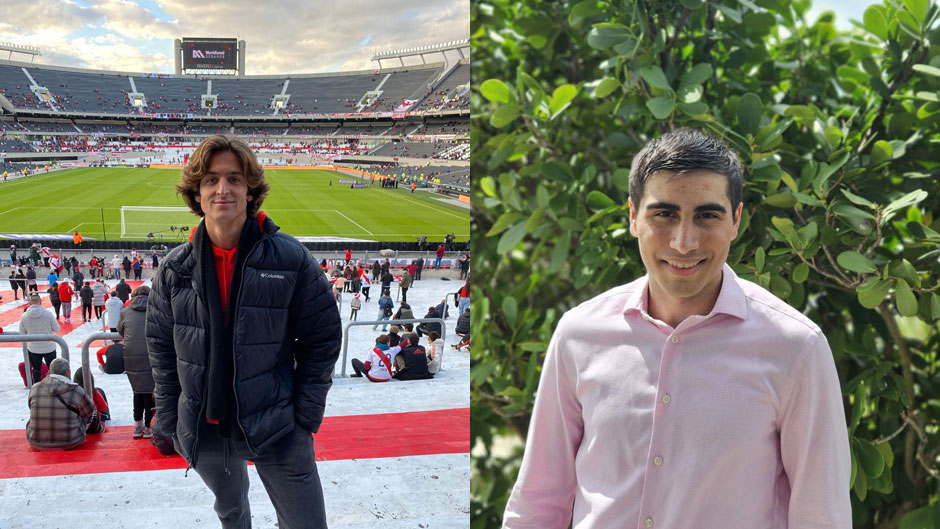Pedro Beron-Vera is spending his summer contemplating the universe, but not from the comfort of his backyard or from a tent pitched in the great outdoors.
The rising senior is conducting research in an astrophysics lab at the California Institute of Technology, where he is participating in the WAVE Fellows program, a prestigious summer research program for undergraduates.
Beron-Vera, a double major in physics and math at the University of Miami College of Arts and Sciences, is working with researchers at Caltech to develop a device that can be attached to a telescope and used to detect light that is not visible to the human eye. The researchers hope to use the device to learn more about high-energy events in space, like black holes and supernovas.
“We’re going to be working with all this cool stuff that I haven’t seen,” Beron-Vera said. “It’s stuff that maybe I’ve only read about.”
Beron-Vera hopes to earn a Ph.D. in physics, and he applied for the WAVE program to gain additional research experience before he starts applying for graduate school in the fall. At the University of Miami, he has worked on a research project led by Massimiliano Galeazzi, the chair of the Department of Physics, involving X-rays in space. In order to detect these X-rays, which don’t pass through Earth’s atmosphere, Galeazzi and his team have to launch telescopes into space.
Gaining research experience was also one of the keys to success for David Raveh, a recent College of Arts and Sciences graduate who majored in physics and math. Raveh will soon be starting a Ph.D. program at Rutgers University, where he will focus on mathematical physics and quantum computing.
During his undergraduate career, Raveh worked on several research projects with Rafael Nepomechie, a physics professor with expertise in quantum computing. Raveh also had the opportunity to participate in research projects led by physics professors Olga Korotkova and Stewart Barnes. By the time he graduated from the University in May, Raveh had co-authored more than a dozen publications in peer-reviewed journals.
Raveh’s advice to undergraduates who hope to pursue a Ph.D. is to behave as if they are already in a graduate school.
“If you want to go to graduate school, treat yourself like you are a Ph.D. student,” he said. For Raveh, that meant not only conducting research, but also finding opportunities to take classes with graduate students at the University.
Raveh’s goal is to become a professor and conduct quantum computing research. While his path seems certain now, it wasn’t always this way. As a freshman at the University, he initially enrolled in an engineering program, but quickly realized it wasn’t the right fit.
Then he discovered physics.
“The ideas and the proofs—I loved it. I thought it was so much fun,” he recalled. “So, I switched to physics and later added a math major as well.”
Raveh excelled in both departments. He graduated with honors and won the Joseph Hirschberg Award for the Outstanding Graduating Physics Major and the James McKnight Outstanding Mathematics Student award.

